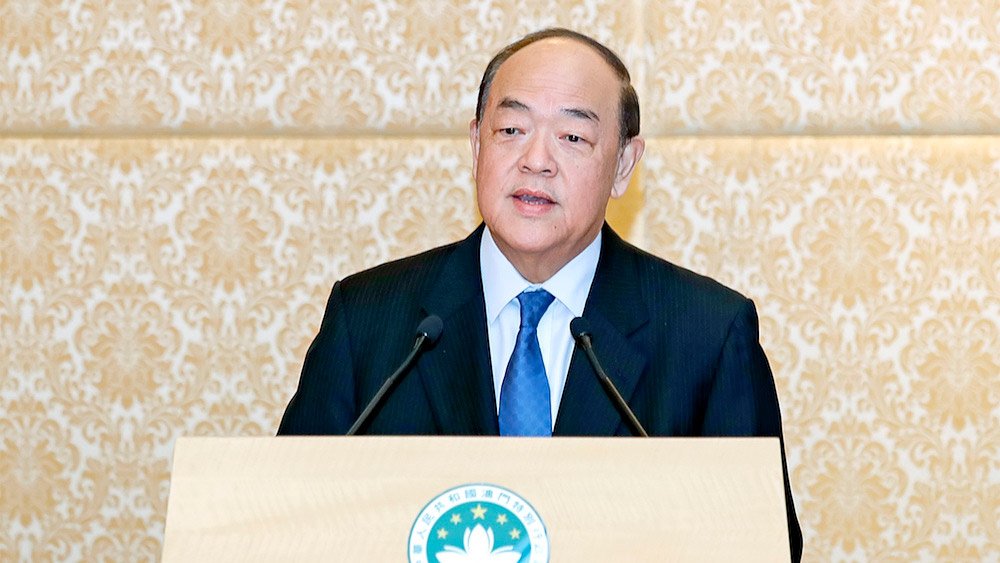Macau’s gaming sector has finally caught a break, as shares in casino operators soared up to 13% on Monday after announcements of new efforts to revive tourism. Chief Executive Ho Iat Seng said at a press conference on Saturday that China would resume an e-visa scheme for mainland travelers and permit group tours, marking a breakthrough that could boost the gaming hub’s tourism-dependent economy that’s been hammered by Covid restrictions.
Macau’s neighboring mainland province of Guangdong will be the first to resume group tours to the enclave. Then the policy will expand to Shanghai, Zhejiang, Jiangsu, and Fujian, which represented almost 60% of mainland visits to Macau in 2019. Ho Iat Seng said that with the new measures officials hope daily visitation could reach 40,000 after the travel easing is implemented, compared with under 11,000 in August.
As per the announcement, in addition to welcoming back tour groups for the first time in almost three years, China will resume issuing e-visas for people visiting Macau by early November, thus making it easier for travelers to obtain permits to enter the city, according to Bloomberg. The gambling hub currently requires pre-booked in-person appointments at immigration office counters.
The changes provide Macau with a tentative path toward recovery. The once bustling gambling hub has taken a heavy blow from Covid Zero policies in the mainland, where most of the city’s tourists come from, with gaming revenue slumping since March amid repeated lockdowns and tougher visa restrictions that kept visitors away.
The plunge in tourism has rippled through other sectors, such as suppliers of slot machines, baccarat table systems, and other casino equipment. Earlier this month, reports indicated several suppliers moved out into more welcoming markets such as Singapore and the Philippines.
The announcement came earlier than expected, analysts said, who had anticipated such measures to be introduced only early next year. Mainland gamblers account for around 90% of total casino revenue.
“Finally, we feel we can talk about a return to normalcy,” JPMorgan Chase & Co. analyst DS Kim wrote in a note Sunday, as reported by Bloomberg. “The resumption of e-visa and group tours should alleviate friction for a Macau trip, as well as signal to many that it’s OK to visit Macau, in turn boosting demand into the year-end holidays and 2023.”
However, the city continues to face obstacles that hinder its reactivation due to the ongoing lockdown restrictions that the Mainland continues to impose due to Covid, even for a small number of coronavirus infections, which is hurting domestic travel demand. Macau has made clear it will continue to align itself with Covid Zero, meaning the specter of movement restrictions also hangs over the gambling hub if local infections crop up.
More broadly, Beijing is tightening control over the traveling of frequent gamblers, which the e-visa change won’t help, Credit Suisse analysts including Kenneth Fong wrote in a note Monday. Packaged tour visitors are also generally lower-spending players, and there’s also the risk of another round of casino closures if Covid cases spike again, he noted.
While nearby Hong Kong has removed its mandatory hotel quarantine in an effort to lure back international travelers and revive its status as a global financial hub, Macau will maintain its seven-day hotel quarantine policy for visitors from the financial hub, Ho said, as reported by Bloomberg. Macau remains largely shut to overseas travelers.
Currently, Chinese tourists to Macau need to book a visa appointment followed by a week-long approval process. The individual visa scheme accounted for around 50% of Chinese visitors to Macau in 2019 while tour groups accounted for around 25% of visitation, says Reuters.
Following the announcement, Sands China’s shares rose more than 13%, Wynn Macau climbed 7%, Galaxy Entertainment advanced 10% while shares of SJM and MGM China jumped 8% each.



